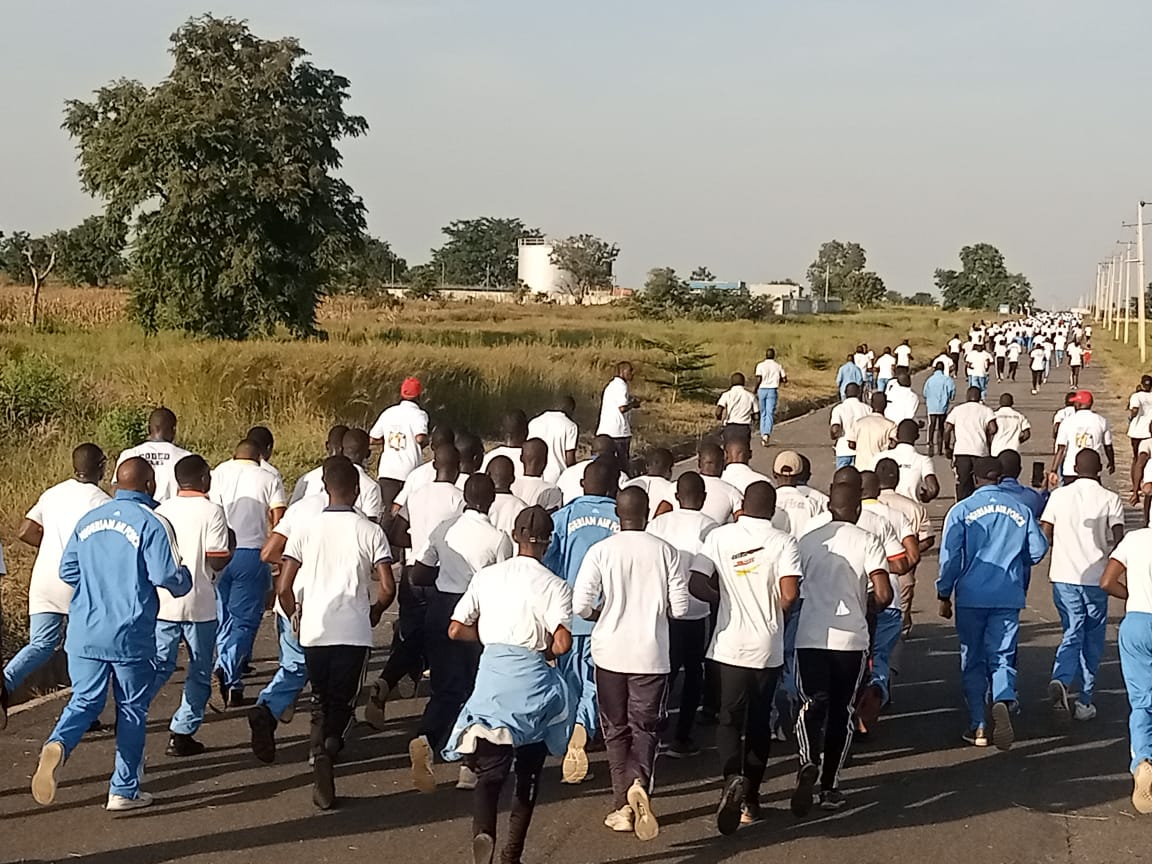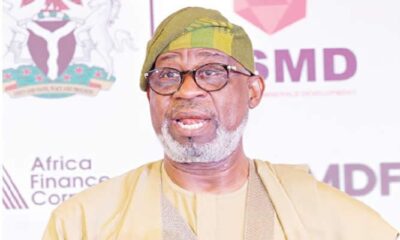The Nigerian Air Force has warned its personnel to desist from participating in political activities while discharging their professional duties.
The Air Officer Commanding, Special Operations Command, Bauchi, Air Vice Marshal (AVM) Usman Abdullahi, gave the warning on Saturday during the 2025 annual 10-kilometre walk and jog exercise organised by the NAF in Bauchi.
AVM Abdullahi reminded officers and men of the force of their constitutional responsibility to remain neutral in political matters, stressing that discipline and loyalty to the nation remained non-negotiable.
“You must remain apolitical. Don’t involve yourselves in any political activities and do not engage in acts that are inimical to the calling of our military profession,” he cautioned.
He further urged them to remain loyal to the Federal Republic of Nigeria, the President, and the Commander-in-Chief of the Armed Forces.
Abdullahi explained that the annual exercise was aimed at promoting physical and mental fitness among personnel, enhancing cohesion, and ensuring combat readiness.
“The NAF pays serious attention to the physical fitness of all its personnel. This exercise is to increase our cohesion, maintain mental alertness, and ensure we remain combat-ready at all times,” he said.
The AOC commended the Bauchi State Government for its continued cooperation and support, noting that the synergy between the state and the force had created an enabling environment for NAF operations.
Speaking shortly after the exercise, Bauchi State Governor, Bala Mohammed, commended the participants for their outstanding performance, describing it as a reflection of discipline, consistency, and determination to succeed.
Represented by his deputy, Auwal Jatau, the governor said the event symbolised unity and teamwork among security agencies and other stakeholders in the state.
“Seeing officers, airmen, airwomen, sister security services, paramilitary agencies, and NYSC members come together in such a lively atmosphere reminds us that sports and fitness can be powerful tools for strengthening peace and solidarity,” he said.
Governor Mohammed reaffirmed his administration’s commitment to sustaining the cordial relationship with the Nigerian Air Force and other security agencies in maintaining peace and stability in the state.
Punch reports that no fewer than 32 participants, including Airmen, Airwomen, officers of the Nigeria Immigration Service, Nigeria Customs Service, and civilians, received awards for their outstanding performances during the exercise.































